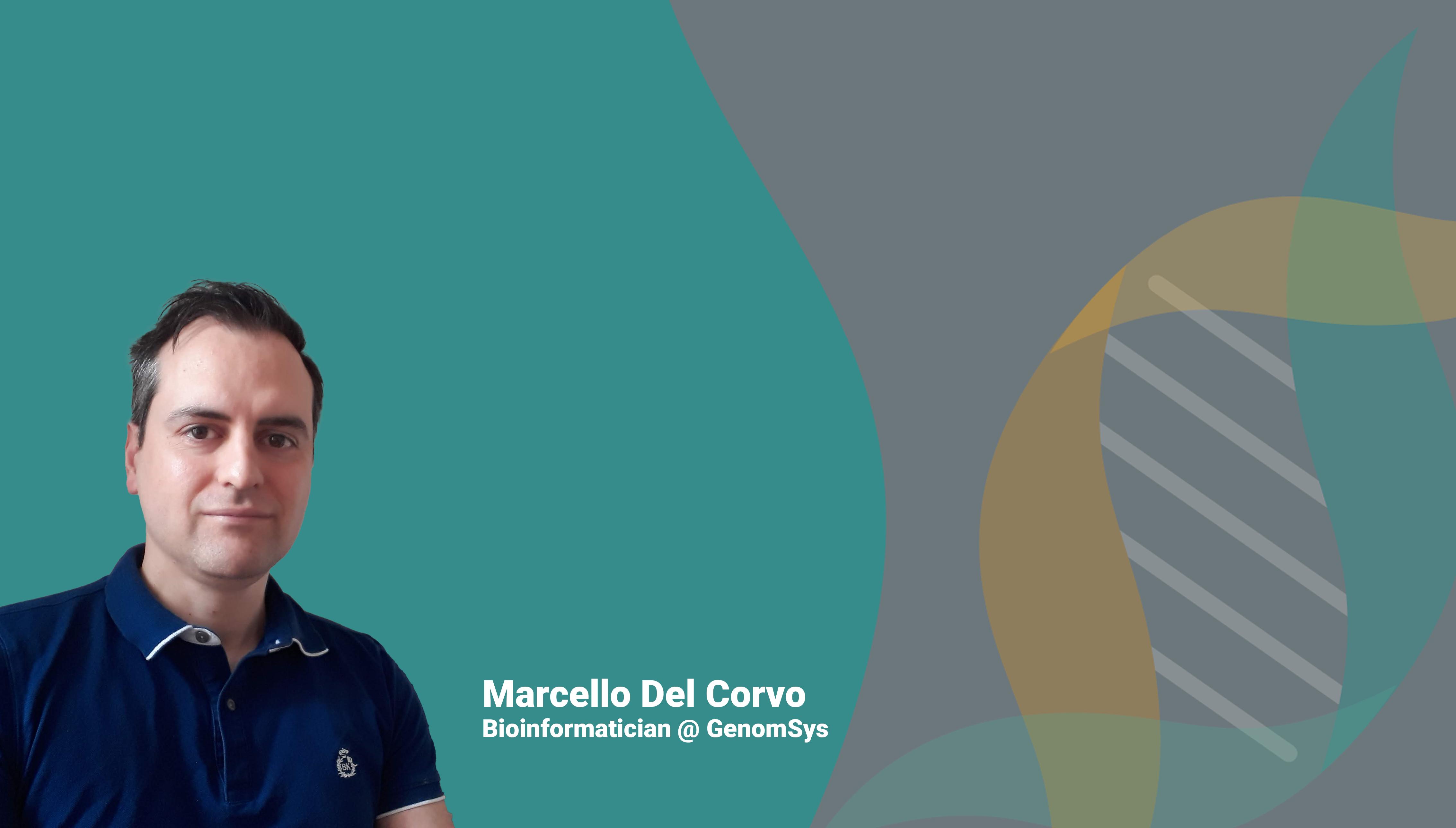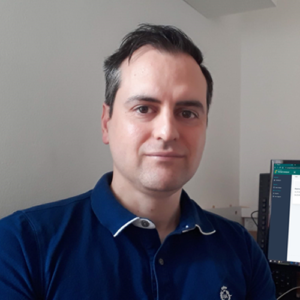Learn more about Marcello through the following quick questions:
Hi Marcello. What do you do at GenomSys and what are you currently working on?
Good morning. Just recently, I joined the GenomSys team as a bioinformatician. Within the bioinformatics team, I am currently involved in evaluating and implementing new technologies within the GenomSys Variant Analyzer software.
What is your take on personalized medicine and what role does GenomSys play in that?
I firmly believe that personalized medicine is the present and future of our healthcare. This way of practicing medicine considers our individualness of the root that causes an illness, rather than addressing solely symptoms that are described commonly for an entire population. Thus, personalized medicine can provide a deep understanding of human physiology through genetic insights and technological advances. This means there will be more and more need in the future for digital platforms taking into account individual variability in genes, and I hope that we, as GenomSys, will play a substantial role in achieving such an improvement.
What is the most significant benefit of GenomSys’ ISO-certified standard for genomic data (MPEG-G), in your opinion?
Privacy is a fundamental right, and an individual’s privacy should be respected and consequently protected when their genomic information is used for research or clinical applications. The MPEG-G standard offers a unique and innovative data encryption tool natively embedded directly into the genomic file. In this way, it can guarantee a high level of security without limiting speed and analysis quality.
Genomic data and data privacy challenges. What is, in your opinion, a way to solve this issue?
Developing effective privacy-protecting solutions is crucial with the rapid growth and increased availability of genomic datasets. I think a combination of appropriate mandatory management of patients’ consents together with the use of cryptographic techniques, which are available as features in the MPEG-G format, can provide a good level of data privacy.
This should boost genetic analysis – ultimately an analysis of an individual’s most personal data – in terms of ensuring that their data is protected at the highest level to unleash its full potential in treating patients and improving the health of us all.
Why did you join GenomSys?
What attracted me most was the opportunity to work in a young, dynamic and closely interacting team devoted to the development of new diagnostic and analytic products, especially in the area of precision medicine. For this reason, I thought that GenomSys was a perfect fit for me.
When you’re not programming at GenomSys, what do you do in your free time?
In my spare time, I enjoy reading books and watching TV series on science fiction topics. I also enjoy going for a walk or working out in the gym, but most of all, I love spending time with my family and friends
Do you listen to podcasts? What are you currently listening to?
Sure! My favorites, in general, are science podcasts. I began listening to them on my way to work during my doctoral studies and discovered how listening to the experiences of other scientists was inspiring. In my opinion, science podcasts have now become a great way to catch up on the latest scientific news, find out about new scientific fields that I wouldn’t usually be interested in and, most importantly, bring the wonders of science to a broader audience. Actually, my favorite is ‘Science Vs.’, a popular podcast that uses science to fact-check and often dissipates popular cultural myths and misconceptions.
What is your favorite base in the DNA (adenine, guanine, cytosine or thymine)?
They’re all important! As I have been working extensively in the past with epigenetic mechanisms that regulate gene expression, I would say cytosine. When it undergoes a chemical process called ‘methylation’, the binding of proteins implicated in the gene transcription is severely hindered, resulting in gene regulation and gene silencing. Many biological processes that underlie complex human phenotypes are due to this kind of modification.
Gene regulation is the process used to control the timing, location and amount in which genes are expressed. The process can be complicated and is carried out by a variety of mechanisms, including through regulatory proteins and chemical modification of DNA. Gene regulation is key to the ability of an organism to respond to environmental changes.[1]
Gene silencing is the interruption or suppression of the expression of a gene at transcriptional or translational levels.[2]
Do you have a favorite chromosome and why is this your favorite one?
My favorite chromosome is, without a doubt, number 2. It is not only the second largest among human chromosomes, with 243 million base pairs covering around 8% of the total DNA, but it is also the one, in my opinion, with the most intriguing history from an evolutionary point of view. A widely accepted theory is that chromosome 2 was formed by the fusion of two ancestral chromosomes that remain separate in other primates. Now this difference, this fusion of the chromosomes, may have been one of the events that led us to separate from the chimpanzee lineage and become humans!
If you have any further questions for Marcello or about GenomSys, please feel free to contact us.
References
[1] National Human Genome Research Institute; Gene Regulation (2022). https://www.genome.gov/genetics-glossary/Gene-Regulation
[2] National Library of Medicine; Gene Silencing (2017). https://www.ncbi.nlm.nih.gov/probe/docs/applsilencing/






